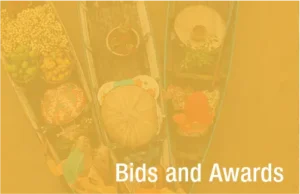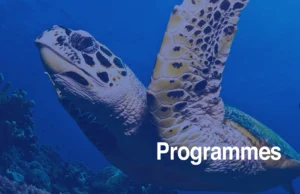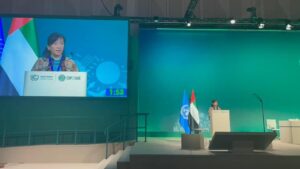Dr. Arvin Diesmos, Senior Director of the Biodiversity and Knowledge Management Department of the ASEAN Centre for Biodiversity (ACB) delivered a message at the third forum on crocodiles in the Philippines held in Manila from 8 to 10 November 2023.
MANILA, Philippines – With the theme “Engaging Communities and Partners Participation Towards Sustainable Conservation’’, the 3rd Forum on Crocodiles in the Philippines was held on 8 to 10 November 2023 at the University of Santo Tomas (UST). The ASEAN Centre for Biodiversity co-hosted this event along with the Biodiversity Management Bureau (BMB) of the Department of Environment and Natural Resources (DENR), Crocodylus Porosus Philippines, Inc., and the UST.
International and local experts, researchers, and students gathered in this three-day forum primarily to advance the conservation and sustainable management of two crocodilian species in the Philippines – the Crocodylus porosus (saltwater crocodile) and the Philippine crocodile (Crocodylus mindorensis). The forum also highlighted the initiatives of various non-government and private organisations on the conservation of the said crocodile species and how local efforts could be aligned with national and regional policies on biodiversity, specifically species conservation.
“Biodiversity is the life support system of our planet. And the ASEAN region is brimming with it—with over 25 per cent of the world’s known plant and animal species that are essential to the health of ecosystems from which we derive all of our daily needs to survive. Scientists and conservation biologists recognise this region as a centre of diversity and endemism—among the most precious areas in the world with a plethora of unique flora, fauna, and ecosystems. Simply put, the ASEAN region is crucial for the protection and conservation of global biodiversity”, said Dr. Arvin C. Diesmos, Senior Director of the ACB’s Biodiversity Knowledge Management Department, in his opening remarks delivered on behalf of ACB Executive Director Theresa Mundita S. Lim.
Four crocodilian species are known in the region and nearly all are on the brink of extinction. Wild populations continue to decline because of shrinking habitats, human-crocodile conflict, and the impacts of illegal wildlife trade.
“Two of the ACB’s flagship programmes, the ASEAN Heritage Parks Programme and the ASEAN Green Initiative, are just some of our key mechanisms for the sustainable conservation of the Philippine crocodile and the rest of the ASEAN region’s unique web of life. Protection of wildlife is best attained when we protect the areas where they live. Thus, we expand and intensify the conservation of protected areas and boldly take actions to restore ecosystems in the region,” added Dr. Diesmos.
Protecting the Philippine crocodile: A deep dive
Keynote presentations were delivered such as the Philippine Biodiversity Roadmap by the BMB-DENR, the BARMM MENRE Plans and Programs by the Ministry of the Environment, Natural Resources and Energy of the Bangsamoro Autonomous Region in Muslim Mindanao, and the Crocodilian Conservation and Sustainable Use by the IUCN-SSC Crocodile Specialist Group. A technical session followed, which was moderated by Dr. Diesmos. The sessions included updates on crocodile conservation and management in the Philippines; animal welfare laws, policies, and guidelines by the Bureau of Animal Industry; crocodile conservation management and governance in Palawan; and Palawan Wildlife Rescue and Conservation Center’s 35 years of crocodile conservation.
The Paghungawan Marsh at the Siargao Island Protected Landscapes and Seascapes and the Philippine Crocodile Conservation Program in San Mariano, Isabela were recognised as two local governments championing crocodile conservation.
Part II of the forum focused on scientific sessions covering the Philippine crocodile’s natural history and ecology, crocodile breeding and husbandry management, human-crocodile coexistence, conservation research, and population management.
The forum likewise included three workshop sessions designed to stimulate knowledge exchange and generate good practices on crocodile conservation for the Philippines and potentially for the rest of the ASEAN region. These were conservation research and population management, crocodile breeding and husbandry management, and managing human-crocodile conflict.
Aside from increased awareness of species conservation, the forum was a timely occasion to boost camaraderie among local and international experts, researchers, and private institutions and strengthen local programmes, now that the habitats of Philippine crocodiles are vulnerable to the effects of climate change and from chemical runoff and water pollution.
The organisers paid tribute to the late National Scientist and ASEAN Biodiversity Hero, Dr. Angel C. Alcala, who pioneered the conservation of crocodiles in the Philippines.
























